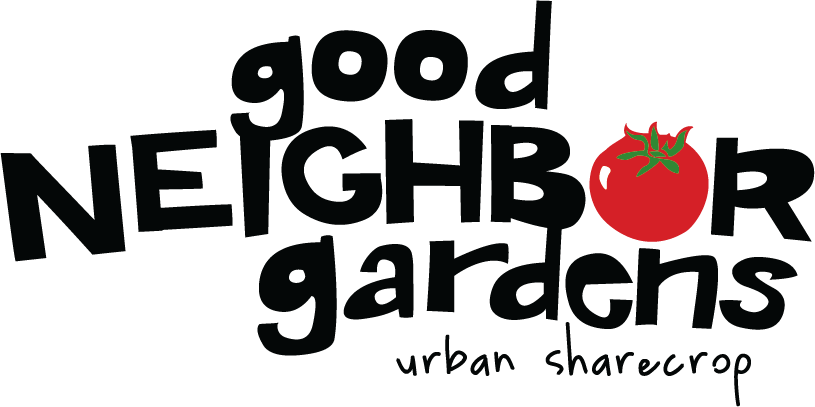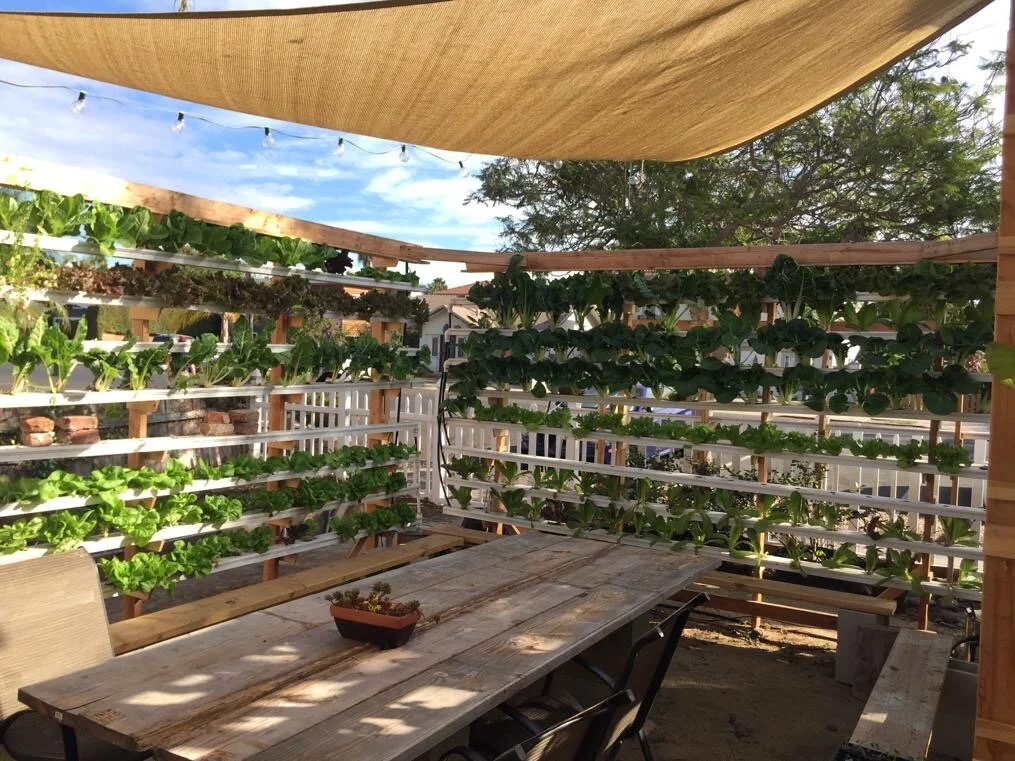Urban Food Sovereignty, Closed Loop Systems, and Child Rearing: An Interview with Benny Thompson
Interview By: Gabriel Cappetta
In this newsletter, we’ll be chatting with urban farm-steader, Benny Thompson. Benny grows food using a vermiponics system that they’ve developed over the past two years. Vermiponics is a form of hydroponics, where plants are grown in vertical rows without soil—the roots of each plant are submerged in water with the necessary nutrients mixed in. But unlike traditional hydroponics, which depends on synthetic (and often petroleum-derived) nutrient mixtures, the plants in Benny’s vermiponics system get all of their nutrients from an innovative worm composter they designed and built.
Gabby: Would you introduce yourself to us?
Benny: My name is Benny, my pronouns are they/them. I’m originally from New Hampshire and I’ve been in San Diego for 20 years.
Gabby: Tell us a bit about your personal background and how it brought you to growing food.
Benny: I grew up with a little backyard garden, and I’ve always been oriented towards being around natural things. That kinda just built up over my adulthood. Moving [growing food] from just a hobby to something that’s fully integrated with every aspect of my life has happened primarily over the past few years, primarily since Trump was elected. I felt [when he was elected] that, as a queer person, my life was in danger and I needed to be able to be more self-sufficient.
Gabby: You mentioned when we first met that you were an engineer, right?
Benny: I don’t identify as an engineer [laughs], but education-wise I have a bachelor’s and master’s degree in engineering. I really identify with being a nurturer, but I have this education that empowers me to develop products and innovate, so I’m applying that to growing food.
Gabby: So why work with worms? Why vermiponics?
Benny: To go to the beginning, I was initially growing, like most people, in soil. But we’re in an urban environment with limited space, and I felt pressure to produce a lot more. Like I was saying before, systemic violence is on the rise and that will affect most marginalized people, including queer people. So, I’ve been trying to figure out how to become self-sufficient with a minimal amount of resources while still being in community. My community, the queer community, is really an urban community because it’s hard to find other queer folks in the country. A lot of marginalized communities are that way, they find their critical mass in urban environments. But then that puts us at risk of not having access to land [and thus food]. I’d already maxed out our property with the little space we had to grow in soil, and it was just not enough to sustain ourselves. So, I thought, “Ok, I’ve gotta go vertical.”
I was looking into that possibility and I came across vermiponics, but even though the idea is out there, there’s basically nobody who has advanced the art [of vermiponics for producing food commercially. There’s almost nothing out there. That’s what triggered me to go, “I’m an engineer, why don’t I figure this out?” The potential, to me, is really huge: We have an abundance of food waste in urban environments that are just going into the landfill. We have all the necessary nutrients [for growing food]. And we have limited space, so it just seems like worms are a really good solution for supporting sustainable urban agriculture without any sort of extractive processes.
Gabby: It’s clear that your vermiponics system relies on a symbiosis between plants and worms, but what is the cooperative relationship that humans have with this ecosystem?
Benny: Now, we’re living in a highly unnatural environment; we have an extremely high density of humans and almost no land, no biology around us that feeds us. Everything is already unnatural, so we need to have unnatural levels of yield, we have to be producing a lot of food in a very small space. The worm tap composter, which houses the worms, does so at an extremely high density. I have to rinse the worm tap every day because what are nutrients for the plants are their toxins. That rinse from the worm tap gets taken right into the hydroponics system where the plants feed on and extract the nutrients from the worms’ waste—the plants clean the water.
The whole system takes care of itself, but if any part fails then it hurts the whole system. If, for example, my plants aren’t doing well and they’re failing to take up nutrients, then all of a sudden there is a backup of nutrients and the environment for the worms is toxifying. If, on the other side, I don’t feed the worms, if I’m not giving them a steady flow of food scraps, then they’re not producing enough nutrients for the plants and so the plants become deficient.
The human cooperative agreement here is about keeping everything in constant flow. The worms are constantly being fed, the plants are constantly being fed, and the whole thing is in constant equilibrium.
Gabby: What have you learned about yourself in developing this system?
Benny: What it’s empowered and enabled me to do is be a primary caregiver for my kids while I’m also working. What I’m realizing is that what I’m doing now, is actually what we’ve been doing for thousands of years but in a modern context. I’ve been able to adapt technology to this awkward urban living situation so I can now live in a farm-stead situation where I’m always with my kids and I’m always working. They’re a part of my vocation. When my baby was just a few months old, they were on my back full time. I didn’t realize how much they were absorbing. They absorb everything I do and then, all of a sudden, one day they’re doing it. It’s not like I was ever trying to teach them.
I wasn’t given that [when I was their age]. I was institutionalized just like everyone else: put in childcare, then kindergarten, then the next thing, and I basically didn’t learn anything about nature or how to take care of myself, I just learned how to survive institutional systems. And so, this feels like a very old and agreeable way to live, one that really passes down critical skills, survival skills to my kids. And I don’t mean to make it just about nuts and bolts, it just feels good. It feels very natural, it feels like how I’m supposed to live, and how I imagine a lot of people would feel they’re supposed to live if they were given the opportunity to be in a family, to be having these intimate experiences all the time with the plants and their kids and partners.
* * *
If you’re interested in getting a food-mural and worm tap composters for your home, contact benny@darknectar.org
Come to the Good Neighbor Gardens Getdown and meet Benny, their family, and see the food-murals and worm taps for yourself!



